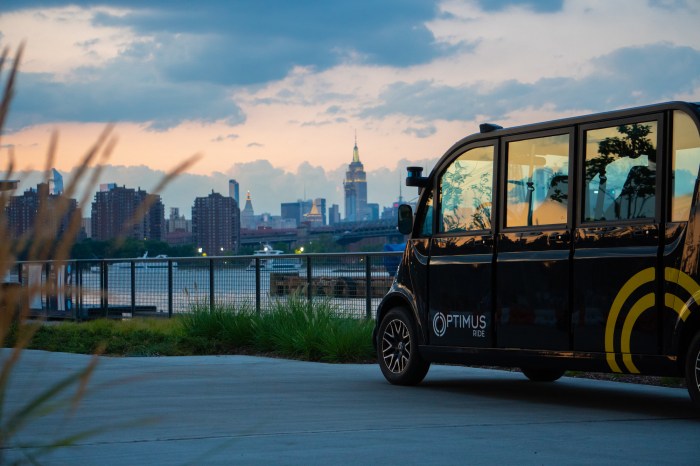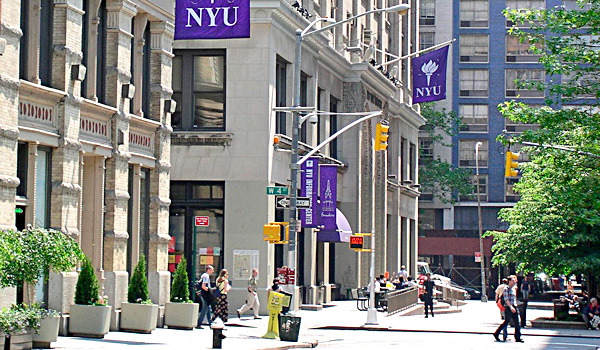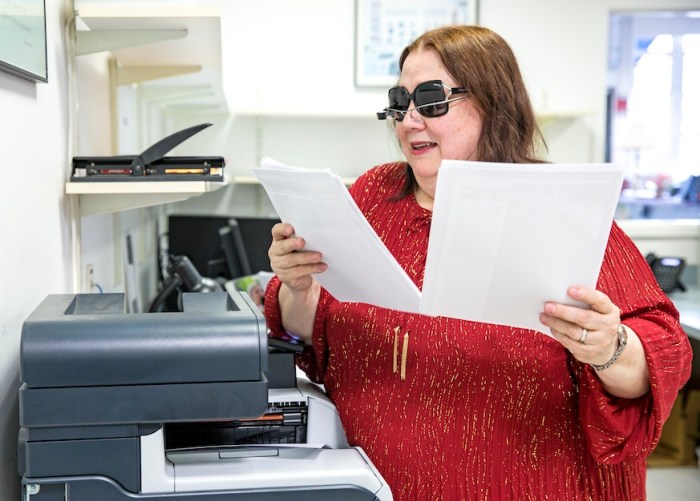There are a lot of choices to make when grocery shopping, especially if you’re trying to be ethical with your purchases.
But how are you supposed to know what’s the “best” egg carton out of labels like “cage free,” “free-range,” “free-roaming,” and “organic?” Or which brand of “fair trade” coffee is inflicting the least harm on our environment?
If you’re inside a bfresh or select Boston-area Stop & Shop location, just look for the HowGood seal of approval.
Alexander Gillett, HowGood CEO, co-founded the company with his brother as a way to help shoppers make sense of all the information on a company’s environmental and social practices.
His family always talked about how to make ethical decisions and the power of supporting “good” companies with your money, he said, and he saw studies that showed other people cared about supporting companies that share their values, as well.
When he looked into what grocery store products were actually selling, though, the two figures didn’t match up.
“We started playing with the idea of, ‘Why is it that everyone you talk to kinda says [they want to shop ethically] but it’s not what’s happening?’” Gillett said.
The reason, he said, is because of just how difficult it is to do.
“We like to joke that you’d need a PhD in five different subject matters to be able to truly understand the impact of one product in a grocery store,” he said. “Asking someone to spend two weeks on their computer researching a Kind Bar isn’t really a fair request. It’s daunting, there’s misinformation, and then there’s being able to unpack it all and understand what it means. Our whole goal here was to simplify that.”
It took ten years to build up that database, in which more than 250,000 products are rated on all sorts of metrics. HowGood then, in a digestible manner, identifies a product’s three main benchmarks: growing guidelines, processing practices and company conduct.
HowGood gives product ratings of “good,” “great” and “best,” found online, via their free app and on signs right next to the products at Stop & Shop stores in Braintree, Hingham, Pembroke and New Bedford and all three locations of the Stop & Shop spinoff chain bfresh.
With that information, customers can purchase from and reward companies that are environmentally friendly and socially responsible.
“Corporations are one of the biggest influencers on what’s happening in our world at this point — a lot have higher GDPs than many countries,” Gillett said. “This is our ability to say, ‘This matters to us, this is important,’ and to create change around that.”
So far, it’s working. Products that get HowGood’s “best” stamp have seen a 230 percent lift in sales. That doesn’t mean people are buying 230 percent more, but buying that much more of, say, one brand of milk over another.
“We’re not creating more consumption, we’re creating more consumption of better products,” Gillett said.
Shopping ethically can be challenging for people in other ways, though, and Gillett acknowledges that. Ethically-produced products are often more expensive, and not everyone can always afford those top choices. Plus, the most ethically-made food might not always be the tastiest.
“I think this can be one of the factors that people make decisions on, it shouldn’t be the only one,” Gillett said. “Having this knowledge doesn’t mean you have to buy the best product, it means you can use that information where and when you want.”
Stop & Shop’s nutritionist, Julie Hersey, said she’s seen the in-store ratings help customers achieve that balance.
“Customers are interested in making the best choices not only for themselves and their families, but also for the planet,” she said, “so they appreciate using HowGood’s rating system as another tool to make shopping for sustainable products even easier.”

















